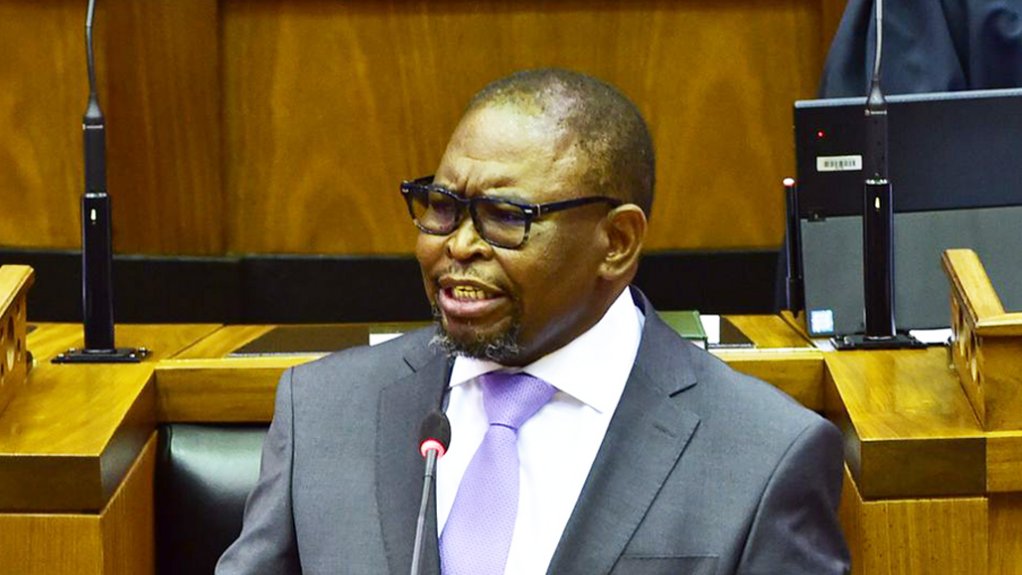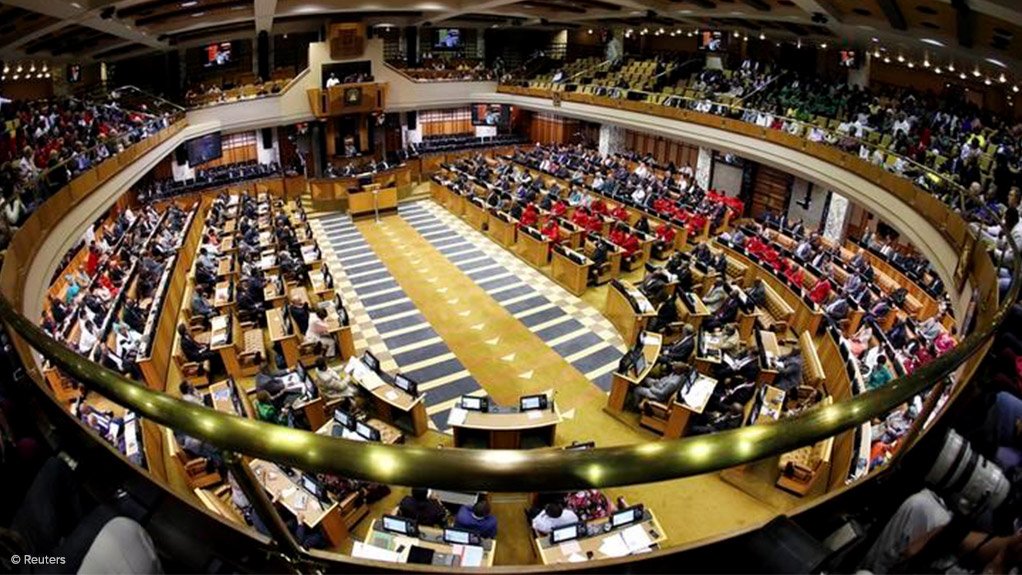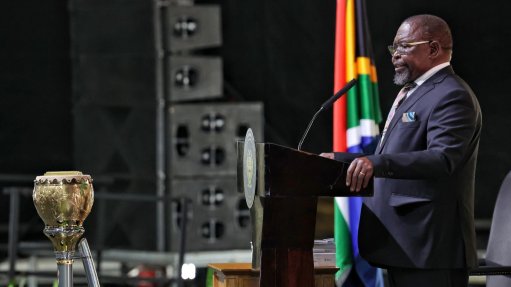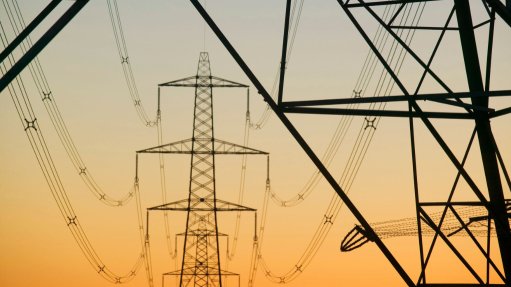Godongwana describes commodity windfall as temporary as he holds consolidation line
Finance Minister Enoch Godongwana indicated on Thursday that government regarded the revenue windfall that had arisen as a result of higher commodity prices as temporary and confirmed that fiscal consolidation would, thus, be sustained to reduce the Budget deficit and stabilise the national debt.
However, he also announced that, barring any major new shocks or unbudgeted spending commitments, the consolidation would yield a primary fiscal surplus in 2024/25, bringing fiscal consolidation to an end.
But over the coming three years, debt-service costs, which are estimated at R1-trillion for the period on a debt stock of R4-trillion, will be the fastest growing spending item, rising at a yearly nominal average of 10.8%, and crowding out spending on service delivery.
Debt-service costs are expected to rise from R269.2-billion in 2021/22 to R365.8-billion in 2024/25, becoming larger than the health and police budgets.
The easing of Covid lockdown restrictions, together with a spike in commodity prices, allowed Godongwana to present his maiden Medium-Term Budget Policy Statement (MTBPS) against the backdrop of an economy that had recovered more quickly than anticipated, despite the setback of the July riots.
Real gross domestic product (GDP) is now forecast to grow by 5.1% in 2021, up from the February projection of 3.3%, while output is expected to return to pre-pandemic levels in 2022 rather than 2023.
However, growth of only 1.8%, 1.6% and 1.7% is forecast for 2022, 2023 and 2024 respectively, which is short even of market expectations and suggestive of limited scope for the structural reforms to begin having a significant growth impact over the coming three years.
The backdrop to the MTBPS was also buoyed by the recent rebasing exercise undertaken by Statistics South Africa, which raised nominal GDP in level terms, which automatically improved deficit and debt ratios to GDP, despite actual revenue, expenditure and debt stock having not changed. On average, nominal GDP increased by R489.8-billion between 2016/17 and 2020/21, triggering a “mechanical decline” in the debt-to-GDP ratio, from 78.8% to 70.7% in 2020/21.
The MTBPS also indicates that gross loan debt will stabilise at 78.1% of GDP in 2025/26, compared with a 2021 Budget estimate of 80.5% of GDP, while the consolidated deficit will narrow from 7.8% of GDP in 2021/22 to 4.9% in 2024/25.
The surge in commodity prices significantly improved the revenue outlook, with the gross tax revenue estimate for 2021/22 having been revised up by R120.3-billion, to R1.49-trillion, compared with the projection in the 2021 Budget. Corporate taxes, underpinned by higher mining industry profits, will contribute R75.5-billion of that additional R120.3-billion.
Collections remain well below pre-pandemic expectations, with revenue from 2020/21 through 2022/23 forecast to be R284.7-billion below the 2020 Budget projections
SPENDING ADJUSTMENTS & PRESSURES
That windfall had already enabled government to announce a R37.9-billion fiscal package following the July riots, which included the reintroduction of the temporary R350-a-month special Covid-19 social relief of distress grant until the end of March, as well as additional expenditure for insurance claims, security expenses and small business support.
Godongwana acknowledged that calls had been made for the R350 grant to be extended beyond the end of March 2022 and transformed into a basic income grant, which at the current level would add R40-billion to yearly expenditure.
He stressed that should such a choice be made, it could not dislodge the fiscal framework and would, thus, need to be funded either by new revenue sources, or through a reprioritisation of spending within the current envelope.
He added that the call for a basic income grant was not the only spending pressure being faced, with the National Treasury dealing with many other requests outside of the current spending plans, that amounted to about R67-billion.
“Critical to the fiscal path we have chosen is the need to be clear and unambiguous on the trade-offs we are willing to make as a nation.
“We cannot do everything we want at the same time,” the Minister said.
Under the current framework, however, non-interest spending had been increased by a net R59.4-billion in 2021/22 and was projected to increase by R31.9-billion in 2022/23 and by R29.6-billion in 2023/24. Both the R20.5-billion wage bill adjustment and the R10.9-billion for the second phase of the Presidential employment initiative are included in the framework.
Consolidated government spending is expected to increase from R2.13-trillion in 2021/22 to R2.24-trillion in 2024/25, at an average annual growth rate of 1.7%.
However, the Minister said spending would remain restrained over the coming three years, promising that any expenditure changes would be funded through improved revenue performance or the reprioritisation of existing programmes.
FISCAL RISKS
Nevertheless, the MTBPS points to several risks to the medium-term fiscal framework, including a warning that export commodity prices are expected to decline, with an associated deterioration in the terms of trade in the outer years of the forecast.
“Windfall commodity revenues are unlikely to provide significant additional revenues beyond 2021/22,” the statement asserts, while also outlining lower price estimates for gold, coal, iron-ore, platinum and palladium for the coming three years when compared with its 2021 estimates.
The MTBPS highlights several other risks to the fiscal framework, including:
- any slowdown in global and domestic economic growth, including a slowing triggered by an intensification of load-shedding by Eskom;
- the evolution of Covid-19 and slow progress in the vaccine roll-out;
- slow implementation of structural reforms;
- further credit rating downgrades owing to spending pressures and materialisation of contingent liabilities; and
- possible upward pressure on the government wage bill ceiling.
In addition, the fiscal framework did not include any additional support to State-owned companies, despite the fact that many are in distress, including Eskom, which has indicated that its R400-billion debt is unsustainable and that it has been able to maintain its going-concern status only on the basis of ongoing equity injections.
“The medium-term economic outlook has improved somewhat since the February 2021 forecast, largely driven by supportive global conditions,” the National Treasury states.
“However, momentum is slowing as a result of domestic and global factors – including continued structural constraints and the scarring impact of the pandemic on jobs and investment – that will adversely affect GDP growth.
“A durable recovery and growth in jobs require urgent implementation of reforms to improve competitiveness, and the ease and cost of doing business.”
Article Enquiry
Email Article
Save Article
Feedback
To advertise email advertising@creamermedia.co.za or click here
Announcements
What's On
Subscribe to improve your user experience...
Option 1 (equivalent of R125 a month):
Receive a weekly copy of Creamer Media's Engineering News & Mining Weekly magazine
(print copy for those in South Africa and e-magazine for those outside of South Africa)
Receive daily email newsletters
Access to full search results
Access archive of magazine back copies
Access to Projects in Progress
Access to ONE Research Report of your choice in PDF format
Option 2 (equivalent of R375 a month):
All benefits from Option 1
PLUS
Access to Creamer Media's Research Channel Africa for ALL Research Reports, in PDF format, on various industrial and mining sectors
including Electricity; Water; Energy Transition; Hydrogen; Roads, Rail and Ports; Coal; Gold; Platinum; Battery Metals; etc.
Already a subscriber?
Forgotten your password?
Receive weekly copy of Creamer Media's Engineering News & Mining Weekly magazine (print copy for those in South Africa and e-magazine for those outside of South Africa)
➕
Recieve daily email newsletters
➕
Access to full search results
➕
Access archive of magazine back copies
➕
Access to Projects in Progress
➕
Access to ONE Research Report of your choice in PDF format
RESEARCH CHANNEL AFRICA
R4500 (equivalent of R375 a month)
SUBSCRIBEAll benefits from Option 1
➕
Access to Creamer Media's Research Channel Africa for ALL Research Reports on various industrial and mining sectors, in PDF format, including on:
Electricity
➕
Water
➕
Energy Transition
➕
Hydrogen
➕
Roads, Rail and Ports
➕
Coal
➕
Gold
➕
Platinum
➕
Battery Metals
➕
etc.
Receive all benefits from Option 1 or Option 2 delivered to numerous people at your company
➕
Multiple User names and Passwords for simultaneous log-ins
➕
Intranet integration access to all in your organisation






















